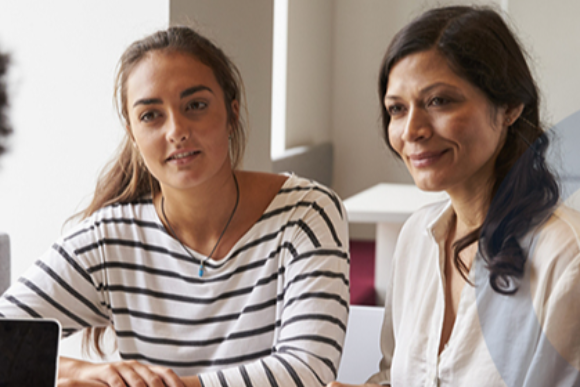Being Self-Aware


Ideally, being self-aware results in youth...
- Explaining their wants and needs to others
- Better understanding their strengths and abilities
- Solving problems, setting goals, and accepting consequences
- Increasing their trust in abilities, qualities and judgment
- Strengthening their ability to speak up for what they need
- Accepting differences and understanding the needs of others
How Can Adults Support Students Build Self-Awareness?
Adults can support the development of self-awareness in students with disabilities by utilizing evidence-based strategies including:
- Teaching the students to lead their Individualized Education Plan (IEP) meetings
- Completing age-appropriate transition assessments
- Engaging students in honest and respectful discussion about their self-determination
- Assessment responses

What Are Ways To Support The Development Of Self-Awareness Skills?
When adults use evidence-based practices to support the growth of self- awareness skills in students with disabilities, they should:

Support the Student
Expect and support students to make many routine choices for themselves through the course of a school day.

Teach the Student
Teach self-awareness strategies.

Ensure Communication
Ensure all students have a functional communication system.

Work Together
Work collaboratively with students to facilitate achievement of their goals.

Resources
Interested in more resources about Self-Awareness?
EXPLORE MORE

Latest Events
Check out the calendar for events that may interest you.
EXPLORE MORE
Want to learn more?
Check out the Zarrow Center’s Me! Lessons.
A set of lessons for teaching self-awareness
SEE FAQS







